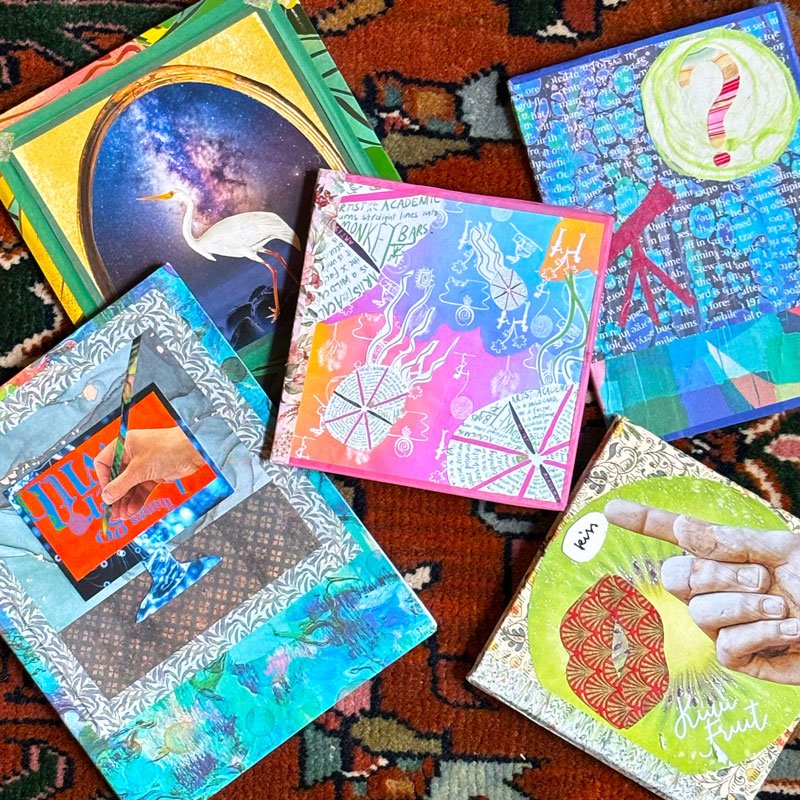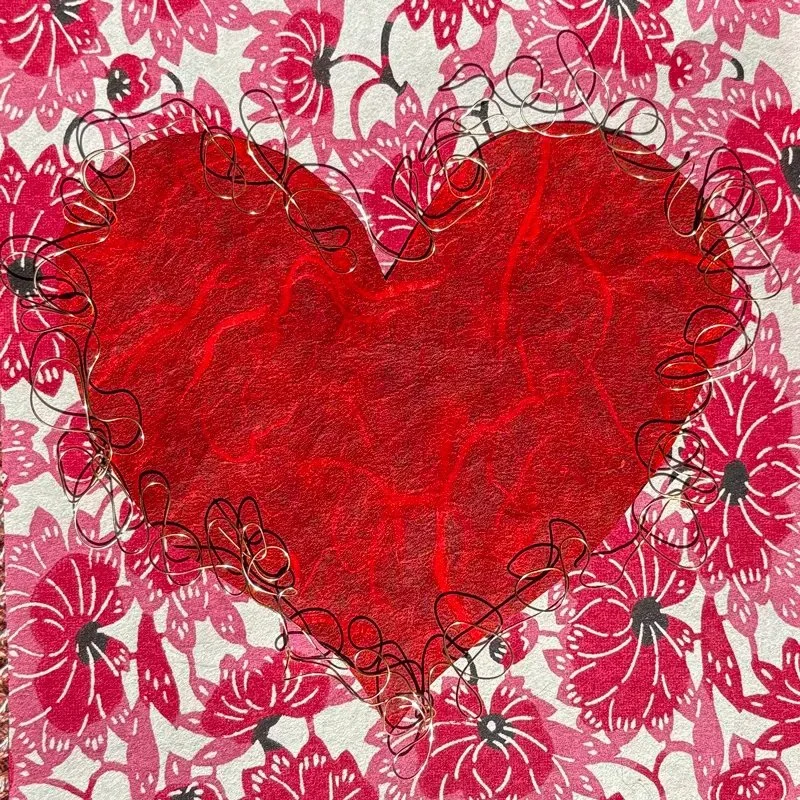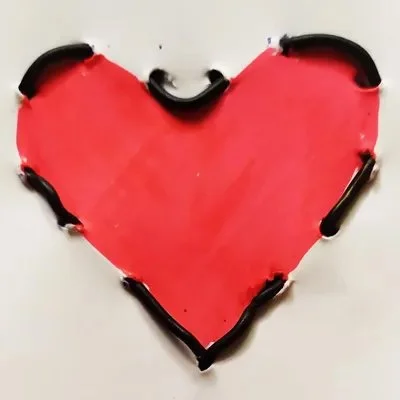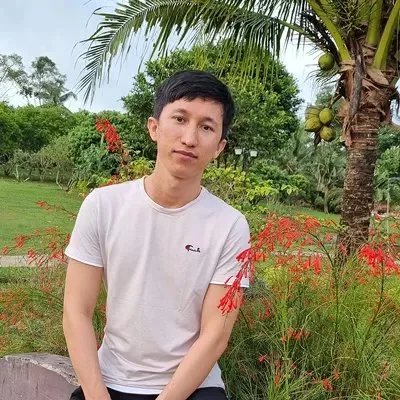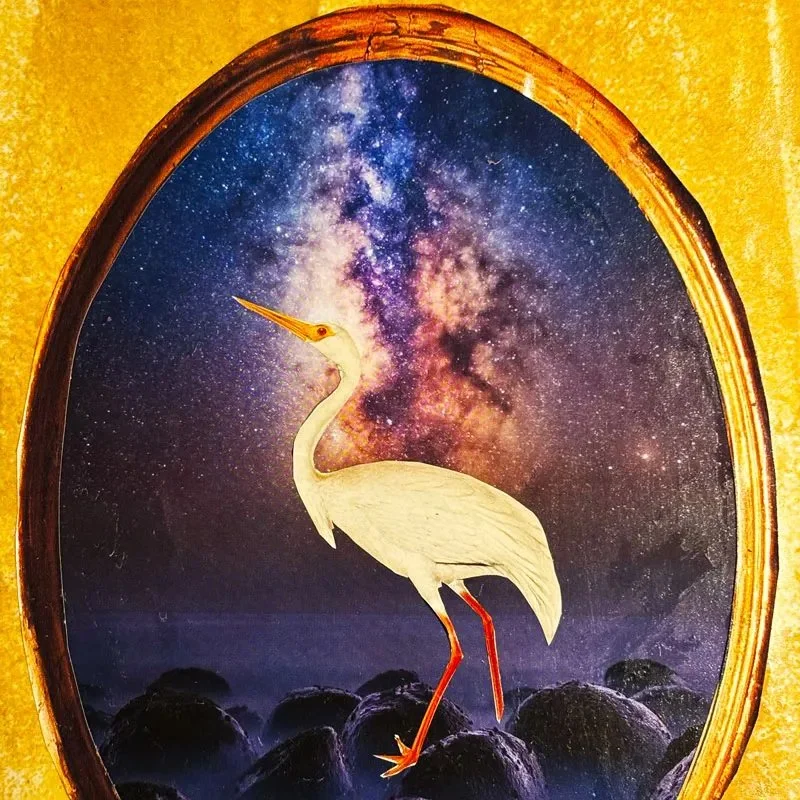On November 15, I invited Jillian Hess for a lively conversation on "Writers and Their Notebooks". Jillian is a professor of English at the City University of New York and author of How Romantics and Victorians Organized Information (Oxford University Press, 2022), and she publishes the fabulous twice-weekly Substack newsletter Noted, which has been named as a Substack Featured Publication for two years running (2022 and 2023).
In the first hour of this free WriteSPACE Special Event, Jillian and I discussed some favorite exemplars of creative note-taking and what we can learn from them. In the second hour, we led a hands-on discussion and workshop for WriteSPACE members, guiding participants through some playful note-taking experiments of their own.
Here’s WriteSPACE Event Manager Amy Lewis’ personal account of the live event:
……………
This Special Event featuring Helen Sword and Jillian Hess offered a deep dive into the note-taking practices of some famous figures, including Julia Child, Carl Jung, John Milton, George Eliot, Toni Morrison, and Sylvia Plath, among others. Not only that, we also heard about the personal note-taking of both Helen and Jillian! It was so interesting to be exposed to new forms of writing and to contemplate how we can draw inspiration from other writers’ practices.
But what do we actually mean by notebooks? Jillian’s Substack newsletter, Noted, traverses the breadth and scope of this complex genre: drafts, annotated bibliographies, process writing, commonplace books, diaries . . . . Exploring these forms can offer us a teleological reading of the writing process: that is, because we already know what a famous author’s finished work looks like, we can gain insight into how they got there.
Jillian described beginning her own notetaking practice of collecting quotes that inspired or moved her. Much later, while researching in various special archives collections for her PhD, she stumbled upon notebooks much like her own, filled with quotes and sayings. The only difference was that these notebooks were hundreds of years old. She had discovered a very established and theorised tradition called the “commonplace book” tradition. This research would not only become the basis of her recent book about commonplace books, scrapbooks, and albums of the Victorian period, but would also launch her amazing Substack newsletter Noted. No longer a purely academic project, she has broadened her previous focus on romantic and Victorian literature to include figures like artists, musicians, scientists, and chefs.
Jillian also spoke about the bounds of access: While she recognizes that digital access is democratizing this information, she noted that only a small percentage of the material is digitized. For example, to read the papers of writers like Audre Lorde or Gloria Anzaldúa, you have to wade into the archives for a fuller picture.
Here are some memorable quotes from Jillian and Helen’s conversation in the first hour:
“The commonplace book (or any notebook) can become the nesting place for incubating ideas.” (Jillian)
“Research on student note-taking shows you remember more when you write by hand because you have to synthesise the ideas as you’re writing. So, notetaking as a practice actually has a pedagogical power.” (Helen)
“It really depends on what you need as a writer. I think we all need different things from our notebooks.” (Jillian)
“For me, it’s the glide of the fountain pen on the paper. I have not yet found anything that can replicate that. The material pleasure of writing connects me to being human in various ways.” (Helen)
*************
In the second hour, Helen and Jillian co-hosted a dynamic workshop that encouraged us all to fill our notebook pages with creative flow. What I personally found fascinating was the discussion that emerged, born from a tricky question: Why are we taught that clean and tidy handwriting in notebooks is better than messiness? And how can we overcome this assumption? By learning to love and accept our messy notebooks, can we also learn to love and accept the messiness of our early book and article drafts?
Jillian assures us that there is creativity in the messiness. But she too has been caught thinking that a tidy notebook equals a tidy mind. If you have felt neatness envy, it might be time let go of that guilt. The truth is that a lot of really great writing happens in the messiness. Your own “waste notebook” may liberate you to scribble, scrawl, and jot freely, and you can extract and re-write any juicy ideas later on.
To replicate the workshop, you may want to try out one of the following exercises while embracing any messiness that may wiggle its way onto the page:
Spend 5 minutes filling a page of your notebook by writing about any topic that springs to mind. You may wish to incorporate color, drawings, creative arrangements, words and imagery, or quotes. Call it a brainstorm, a creative explosion, idea generation, whatever you like. But don’t overthink the process and let yourself be surprised by what flows.
Be inspired by Carl Jung’s daily mandalas and create your own. This could become a morning ritual, like the “morning pages” that Julia Cameron advocates every writer should try. Embrace it as a quiet and reflective moment to warm up your writing day. See several of the creations from Jung’s Red Book below.
Thank you to Jillian and Helen for an inspiring romp through the world of notebooks and notetaking, and thank you to all the participants for sharing your comments and engaging questions.
See you again at the next event!
WriteSPACE and WS Studio members can now watch the recording of the full two-hour in their Video library.
Not a member? Register to receive an email with a link to the video of the first hour.
Better yet, join the WriteSPACE with a free 30 day trial, and access our full Library of videos and other writing resources.


